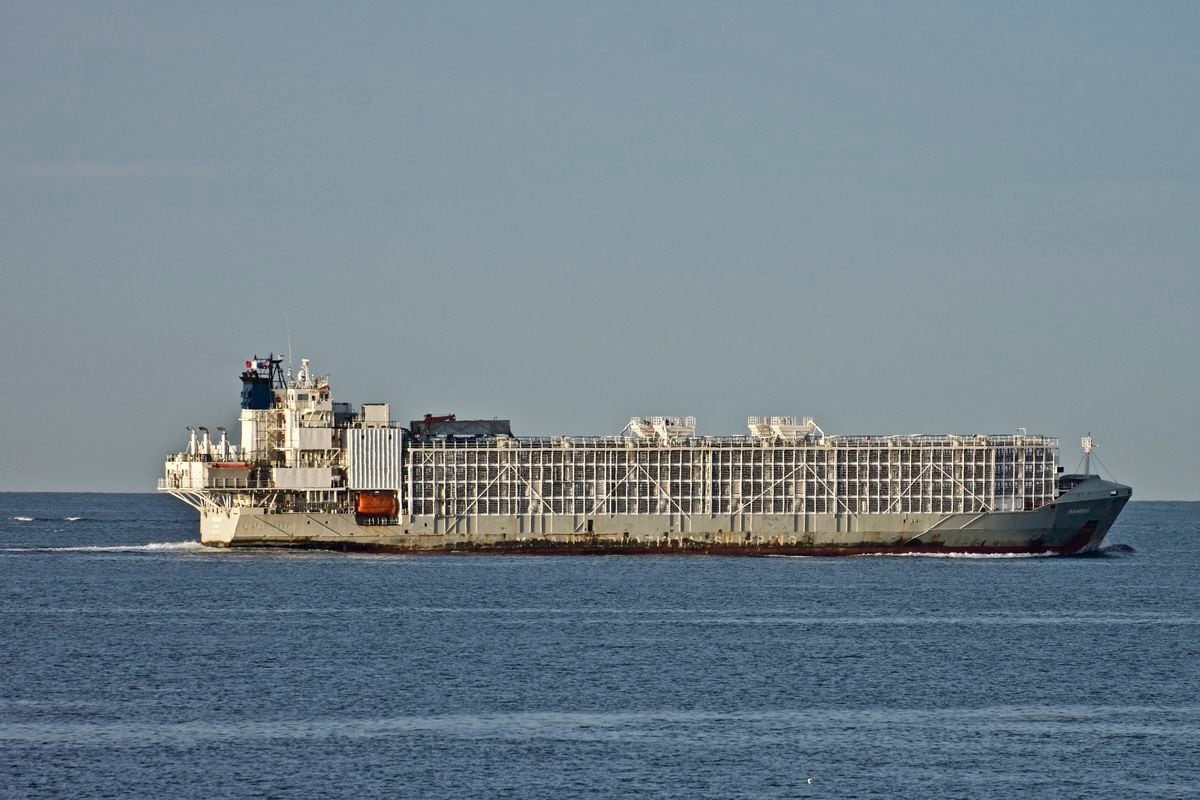EL PAÍS offers the América Futura section openly for its daily and global information contribution on sustainable development.
If you want to support our journalism, subscribe
here
.
Brazil is the largest meat exporter in the world.
What many do not know is that this meat reaches various corners of the world in the form of still living animals.
Tens of thousands of oxen, in particular, leave Brazil's ports each year and spend weeks crammed on the high seas before being shot down.
Most land in Middle Eastern countries, which want the cattle live to ensure that the halal rite is followed, which requires that the animal be oriented towards Mecca and be slaughtered by a Muslim, with a knife cut in the throat.
In February, one of those ships left southern Brazil and made a refueling stop in Cape Town.
The South African city was quickly filled with a strong stench that caught the attention of its inhabitants.
The mayor's office detected that the origin was in the port.
A local NGO obtained judicial permission to enter the boat and verified the deplorable state in which 19,000 oxen were found, especially due to the levels of dirt.
Veterinarians from the organization had to euthanize eight animals, while others were found dead.
On February 20, the ship left for Iraq, as planned, after reopening an old debate about the continuity of this commercial practice.
The legal director of the National Forum for Animal Defense and Protection of Brazil, Ana Paula Vasconcelos, said by phone that the boat incident portrays what the export of live animals entails.
“It was a scene of horror due to the extreme accumulation of feces and urine.
The animals were on top of their own excrement, with dead, sick and injured animals (…) it is an activity that has to stop immediately because it is harmful to everyone and is not even justified financially.”
Brazil has been exporting live cattle for more than 20 years.
The law determines that, before starting the trip, animals spend at least a week in an enclosure where their health status is verified and veterinary tests and checks are carried out.
It also requires that, for land transport, animals do not spend more than 12 hours in a truck, and in the case of air travel, that they be able to stand with a minimum of ten centimeters above their heads.
However, no specific requirements are established for boat trips, the size of the pens or the duration of the trip.
Normally it is several weeks.
Activists say that most of the boats are very old and do not meet minimum safety requirements for animals.
The Confederation of Agriculture and Livestock of Brazil (CNA), which brings together the main companies in the sector, declined to participate in this report.
One of the 19 thousand cows from Brazil found in Cape Town. National Council of Societies for the Prevention and Cruelty to Animals.
Brazil is one of the largest meat producers in the world and the second largest exporter of live cattle, surpassed only by Australia.
Last year, it exported animals worth $488 million, about 198,000 tons.
That's a 154% increase compared to 2022. More than half of those oxen ended up in Turkey.
The other countries that imported the most were Iraq, Lebanon, Egypt and Jordan, according to information from the Ministry of Agriculture and Livestock, which assures that work is being done to expand the purchasing markets.
Meanwhile, Brazilian activists have been fighting for some time to end this practice.
Last year, they managed to get the Court to prohibit it, but it was a provisional decision that will not come into force until an appeals court rules.
The judge asked in his ruling that, since Brazil has the “eternal shame” of being the last country in America to abolish slavery, that at least it not be the last to “effectively respect the rights of non-human animals.”
At the same time, pressure is growing to legislate on the issue.
There is already a bill prohibiting the transport of live animals, but it has not yet been voted on, and the Brazilian parliament, with a strong presence of congressmen with interests in the powerful agricultural sector, does not offer a very promising scenario.
The debate reappears every time there is an incident.
In recent years, there have been at least two other accidents involving livestock exported live.
In 2012, more than 2,000 animals bound for Egypt died of suffocation during the journey because the ship's ventilation system failed.
In 2015, a boat left the state of Pará, near the Amazon delta, heading to Venezuela.
She had on board 5,000 oxen and 700 tons of oil.
She was shipwrecked very close to the coast, leaving thousands of bodies underwater, others stranded on nearby beaches and a very serious environmental problem.
Most ships do not meet the minimum safety requirements for transporting live animals. National Council of Societies for the Prevention and Cruelty to Animals.

